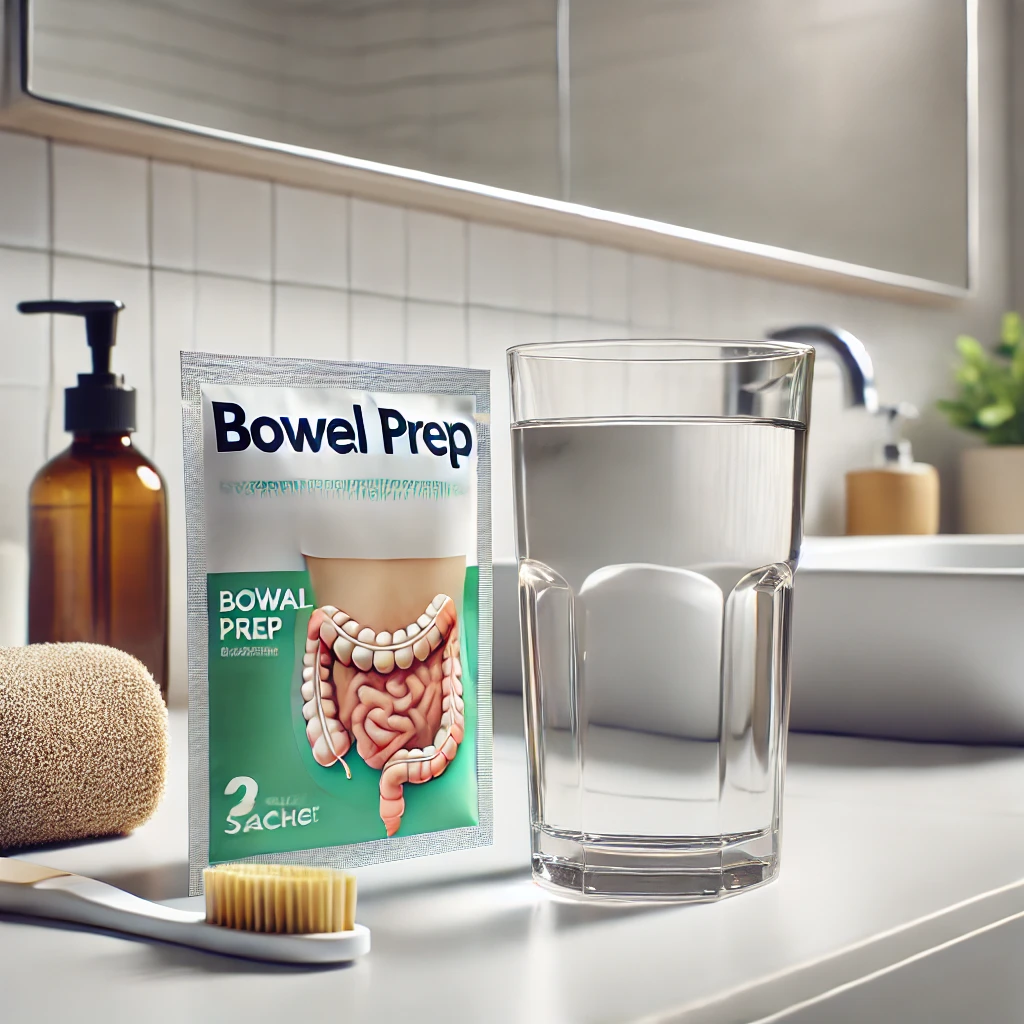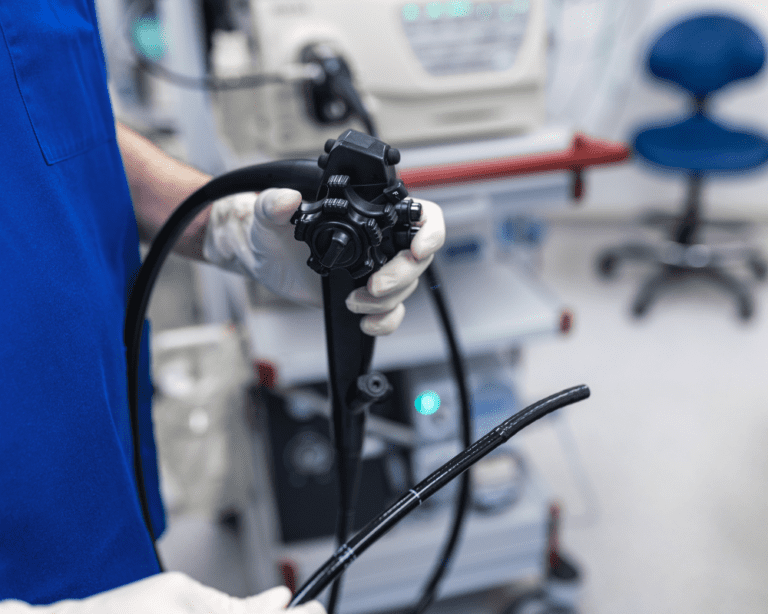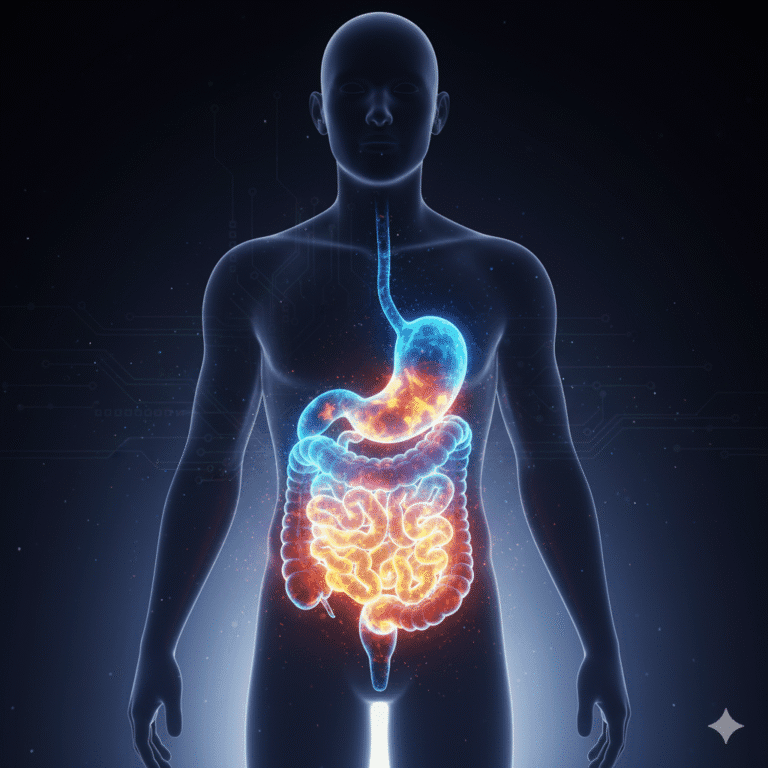A Crohn’s disease diagnosis can mean regular colonoscopies to monitor your condition. While the thought of a Crohn’s colonoscopy might cause anxiety, understanding the procedure and how to prepare for it with Crohn’s disease in mind can significantly ease your stress and improve your experience. This comprehensive guide will equip you with all the information you need to approach your NHS colonoscopy with confidence.
If you have Crohn’s disease, a colonoscopy might be part of your regular diagnostic or treatment plan on the NHS. This procedure allows your gastroenterologist to examine the lining of your large intestine (colon) and rectum for signs of inflammation, ulcers, or other abnormalities. While many feel nervous about a colonoscopy, learning how to prepare with the NHS guidelines and understanding the procedure—including the role of the camera—can make it much easier.
Crohn’s Disease and How Colonoscopies Help
What is Crohn’s Disease?
Crohn’s disease, a type of IBD, causes chronic digestive tract inflammation that can lead to symptoms like diarrhoea, weight loss, and pain. This inflammation can affect any part of the digestive system, from the mouth to the anus, but most commonly involves the lower part of the small intestine (ileum) and the colon1. Symptoms of Crohn’s disease can vary depending on the location and severity of the inflammation, but may include:
- Abdominal pain and cramping
- Diarrhoea, which may be bloody
- Urgent need to have a bowel movement (urgency)
- Weight loss
- Fatigue
- Loss of appetite
- Fever
How Does Crohn’s Disease Affect the Colon?
In Crohn’s disease, the inflammation can cause thickening of the bowel wall, ulcers (open sores), and scar tissue formation. This can narrow the passageway in the colon, leading to blockages and difficulty passing stool. In some cases, the inflammation may also affect the surrounding tissues, leading to complications like fistulas (abnormal connections between the bowel and other organs) or abscesses (collections of pus).
Can a Crohn’s Colonoscopy Detect Crohn’s Disease?
A colonoscopy, using a specialised camera, is a valuable tool for diagnosing and monitoring Crohn’s disease. It provides a detailed view of the colon and rectum, helping identify inflammation or abnormalities. During the procedure, your doctor will insert a long, flexible tube with a camera attached (colonoscope) through your anus to examine the lining of your colon and rectum. They can take tissue samples (biopsies) from areas of concern for further analysis under a microscope.
While a colonoscopy can be very helpful in diagnosing Crohn’s disease, it’s important to understand that it doesn’t always provide a definitive answer. Sometimes, the inflammation may be patchy or limited to areas beyond the reach of the colonoscope, such as the upper part of the small intestine. Additionally, other conditions can mimic the appearance of Crohn’s disease on a colonoscopy. This is why your doctor may use other tests like blood tests, stool tests, or imaging studies like CT scans or MRIs to get a more complete picture.
Is It Possible to Have a Clear Colonoscopy and Still Have Crohn’s Disease?
Yes, it’s possible to have a normal-looking colonoscopy and still have Crohn’s disease. As mentioned earlier, the inflammation in Crohn’s disease can be patchy, and the colonoscope may not reach all affected areas. Additionally, some people with Crohn’s disease may have microscopic inflammation, which wouldn’t be visible during a colonoscopy but can be detected in biopsies.
Can a Colonoscopy Make Crohn’s Disease Worse?
A colonoscopy is a generally safe procedure, but it’s not without some potential risks. These risks are typically minor and can include bloating, cramping, and discomfort after the procedure. In rare cases, there may be bleeding or perforation (a tear in the bowel wall).
For individuals with Crohn’s disease, there’s a very small chance that the colonoscopy itself could trigger a flare-up. However, the benefits of the procedure in terms of diagnosis and monitoring typically outweigh this risk. It’s important to discuss any concerns you have with your doctor beforehand, and they can take steps to minimise the risk of complications, such as adjusting your medications before the procedure.
My Experience with Crohn’s Colonoscopies (NHS)
Living with Crohn’s disease, I understand the frustration of waiting for an NHS colonoscopy. Unfortunately, due to demand on the NHS, waiting times can be lengthy. However, during this time, it’s important to communicate any worsening of your symptoms to your doctor. They may be able to adjust your medication or recommend alternative tests to monitor your condition.
In the meantime, focusing on managing your Crohn’s disease through diet, lifestyle modifications, and stress management can help. There are also excellent support groups available through charities like Crohn’s and Colitis UK2 that can provide invaluable guidance and support.
What to Expect from the Colonoscopy Camera
The camera used in a colonoscopy is about the width of a finger. Attached to a flexible tube, it captures high-quality images to help doctors assess your colon’s health. Despite its size, the procedure is designed to minimise discomfort.
Preparing for a Colonoscopy on the NHS with Crohn’s
While you might not have much control over the scheduling of your colonoscopy on the NHS, there are steps you can take to prepare and ensure a smooth experience:
- Discuss Timing with Your Doctor: If possible, have a conversation with your doctor about the timing of your colonoscopy. Ideally, you want to schedule it during a period of relative disease stability to minimise the risk of a flare-up triggered by the procedure.
- Inform Your Doctor About Your Medications: Provide your doctor with a complete list of all medications and supplements you’re taking, including over-the-counter drugs and herbal remedies. Certain medications, such as blood thinners or iron supplements, may need to be adjusted or stopped before the colonoscopy.
- Dietary Modifications: A few days before your colonoscopy, you’ll likely need to switch to a clear liquid diet as instructed by your doctor. The NHS typically provides specific information and resources on clear liquid diets for colonoscopies.
- Bowel Cleansing: Preparation includes bowel cleansing, an essential step for a clear view during the procedure. NHS patients may use a colonoscopy prep solution, such as low-volume or tablet-based options. Speak with your doctor about which method works best for you. The NHS will provide you with the specific bowel prep solution and instructions on how to use it. There are also newer, low-volume prep options available on the NHS in some cases. Discuss these options with your doctor to see if they’re suitable for you.
- Discuss Any Concerns: Don’t hesitate to discuss any concerns you have with your doctor before the procedure. This could include questions about sedation options, potential risks, or managing your Crohn’s disease during the recovery period.
What Is the New NHS Prep for Colonoscopy?
The NHS is constantly evaluating and adopting new and potentially more comfortable bowel prep options for colonoscopies. Here are some examples that might be available on the NHS, depending on your local hospital trust:
- Low-Volume Preps: These preps involve smaller volumes of liquid compared to traditional methods. They may also be combined with bisacodyl tablets, which work by stimulating your bowels to contract and expel stool.
- Split-Dose Preps: These preps involve taking the laxative solution in two divided doses, one the day before and another on the day of the procedure. This can make the process more manageable for some people.
- Tablet-Based Preps: These newer options involve taking tablets instead of drinking large volumes of liquid. While not yet widely available on the NHS, they may be a good option for those who find traditional preps difficult to tolerate.
It’s important to discuss these newer prep options with your doctor to see if they’re available at your hospital and suitable for you. They can assess your individual needs and recommend the most appropriate bowel prep method.

What a Colonoscopy Can Detect
A colonoscopy is a versatile tool that can be used to diagnose and monitor a variety of gastrointestinal conditions besides Crohn’s disease. Here are some examples:
- Ulcerative Colitis: Another type of IBD that causes inflammation and ulceration of the inner lining of the colon.
- Colon Cancer: Colonoscopy is a crucial tool for screening for and detecting colon cancer, especially for individuals with an increased risk, such as those with a family history of the disease.
- Polyps: These are growths on the inner lining of the colon. While most polyps are benign (noncancerous), some have the potential to become cancerous over time. A colonoscopy allows for the removal and biopsy of polyps to determine if they are cancerous.
- Diverticulitis: Inflammation of pouches that can form in the lining of the colon.

Common Questions About Colonoscopies and Crohn’s
Colonoscopies can be a valuable tool in diagnosing Crohn’s disease, but they aren’t always definitive. The accuracy can depend on the location and severity of the inflammation. Your doctor may use other tests in conjunction with a colonoscopy for a more complete diagnosis.
Here are some essential precautions for individuals with Crohn’s disease before a colonoscopy on the NHS:
Inform Your Doctor About Your Disease Activity: Let your doctor know if you’re experiencing a flare-up or any worsening of your symptoms before the procedure. They may need to adjust the timing of the colonoscopy or take steps to manage your Crohn’s disease beforehand.
Discuss Medication Adjustments: Talk to your doctor about any adjustments needed to your medications before the colonoscopy. This may include stopping certain medications that could interfere with the procedure or bowel prep.
Plan for Recovery: While waiting times for NHS appointments can be frustrating, it’s important to plan for a smooth recovery after your colonoscopy. Here are some tips: Take Time Off Work: If possible, arrange time off work for the day of your colonoscopy and potentially the following day, depending on how you feel.
Arrange Transportation: Ask a friend or family member to drive you to and from your appointment, as you won’t be able to drive yourself after sedation.
Stock Up on Supplies: Get some soft, absorbent wipes and loose-fitting clothing ready for after the procedure.
Colonoscopy prep timing varies but typically starts the day before the procedure. You’ll follow NHS instructions to take laxatives or prep solutions, clearing your bowel for accurate results.
Additional Resources from the NHS
- NHS – Colorectal cancer screening: https://www.nhs.uk/conditions/bowel-cancer-screening/
- NHS Choices – Crohn’s disease: https://www.nhs.uk/conditions/crohns-disease/
Conclusion
A Crohn’s colonoscopy on the NHS can be a necessary but potentially daunting procedure. However, by understanding what to expect, taking steps to manage your Crohn’s disease beforehand, and utilising the resources available, you can ensure a smoother experience. Remember, you’re not alone in this. There are many support groups and resources available to help you manage your Crohn’s disease and navigate the NHS system.
I hope this comprehensive guide empowers you to feel more prepared for your NHS Crohn’s colonoscopy. Don’t hesitate to reach out to your doctor or Crohn’s and Colitis UK with any further questions or concerns.
- National Institute for Health and Care Excellence (NICE), https://www.nice.org.uk/guidance/ng129 ↩︎
- Crohn’s & Colitis UK, https://crohnsandcolitis.org.uk/ ↩︎





